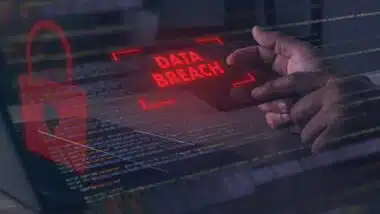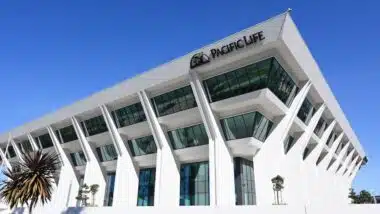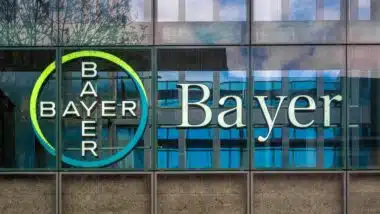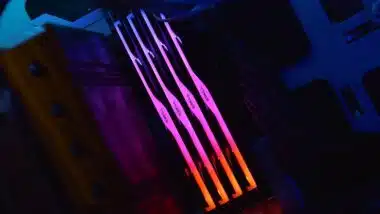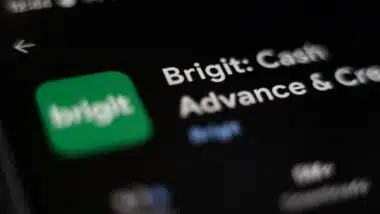
Justice Department officials recently announced charges against 345 people allegedly involved in health care fraud that led to $6.2 billion in deceptive medical billing.
Brian C. Rabbitt, acting assistant attorney general for the Justice Department’s criminal division, said more than 100 doctors, nurses and other health care professionals were among those caught up in the investigators’ nets. Charges were also filed against operators of substance abuse treatment centers and telemedicine companies that host virtual doctor-patient appointments via video or web chats.
A total of 192 cases were brought.
“This nationwide enforcement operation is historic in both its size and scope, alleging billions of dollars in healthcare fraud across the country,” Rabbitt’s online announcement said. “These cases hold accountable those medical professionals and others who have exploited health care benefit programs and patients for personal gain.
The cooperative law enforcement actions announced today send a clear deterrent message and should leave no doubt about the department’s ongoing commitment to ensuring the safety of patients and the integrity of health care benefit programs, even amid a national health emergency.”
Telemedicine Seeing Increase in Health Care Fraud
Telehealth billing fraud accounted for the bulk of the allegedly illegal charges announced by Rabbit on Sept. 30 – some $4.5 billion worth. Justice officials charged 86 people based on investigations in 19 judicial districts across the country, they said.
Some telemedicine executives are accused of paying doctors and nurse practitioners to order unnecessary “medical equipment, genetic and other diagnostic testing, and pain medications” for patients without ever interacting with them, or after only brief telephone conversations, the Department of Justice said.
Telemedicine and telehealth are words used interchangeable to describe remote or virtual appointments between health care providers and patients using telecommunications technology, be it telephones, smart phone video calling or internet-based video meetings.
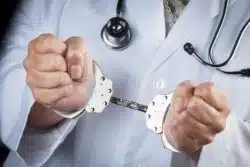 The medical equipment companies, laboratories and pharmacies involved in the purported fraud would buy the doctors’ orders in exchange for kickbacks and bribes and then submit claims to Medicare and private insurance providers for the items, the attorney general’s office said.
The medical equipment companies, laboratories and pharmacies involved in the purported fraud would buy the doctors’ orders in exchange for kickbacks and bribes and then submit claims to Medicare and private insurance providers for the items, the attorney general’s office said.
According to the Department of Justice, the proceeds from the fraudulent telehealth activities were “laundered through international shell corporations and foreign banks for the benefit of the telemedicine executives,” the online medical news site Medscape reported.
“Telemedicine can foster efficient, high-quality care when practiced appropriately and lawfully. Unfortunately, bad actors attempt to abuse telemedicine services,” U.S. Health and Human Services Deputy Inspector General GaryCantrell was quoted in the announcement as saying. “Audacious schemes such as these are prevalent and often harmful.”
Cantrell’s office participated in the fraud investigations, and said the illegal practice has been on the rise since 2016, Medscape reported.
In addition to the criminal cases, the Centers for Medicare and Medicaid Services recently revoked Medicare billing privileges from 256 medical providers over their alleged involvement in telehealth fraud.
Substance Abuse Treatment Centers Also Investigated
Another area in which investigators uncovered millions in allegedly illegal billing was the substance abuse sector.
According to the attorney general’s announcement, more than a dozen people were charged in connection with billing for about $845 million of unnecessary tests and treatments for patients seeking drug and alcohol addiction treatment.
Doctors, owners and operators of treatment centers and patient recruiters – which the Justice Department said are referred to as “body brokers” – were found to be part of schemes in 51 jurisdictions that involved patients being subjected to unnecessary drug testing. Insurance providers were also billed for therapy sessions that patients never attended and medicines that patients did not need.
Other Health Care Fraud Charges
Illegal opioid distribution schemes were another category of health care fraud touched on in the attorney general’s roundup of charges.
The Justice Department said 240 people were charged recently in cases of illegal prescriptions opioids, and more traditional healthcare fraud, to the tune of more than $800 million. The healthcare professionals accused in those cases were allegedly responsible for the distribution of “more than 30 million doses of opioids and other prescription narcotics,” the news release said.
National Strike Force Formed
The Department of Justice also revealed recently it has formed the National Rapid Response Strike Force to investigate health care fraud allegations and prosecute cases “involving major health care providers that operate in multiple jurisdictions.” Already in action, the strike force led the effort that resulted in the telehealth sweep, the department said.
According to a report by Newsbreak, the strike force will use “data analytics to target fraudulent activities, as opposed to the traditional reliance on whistleblowers.”
Free Medicare/Medicaid Fraud Whistleblower Evaluation
If you are aware of instances of systemic Medicare and/or Medicaid fraud within your place of employment — specifically healthcare facilities like hospitals, doctor’s offices, treatment centers, pharmaceutical companies, and more— take action today.
This article is not legal advice. It is presented
for informational purposes only.
ATTORNEY ADVERTISING
Top Class Actions is a Proud Member of the American Bar Association
LEGAL INFORMATION IS NOT LEGAL ADVICE
Top Class Actions Legal Statement
©2008 – 2026 Top Class Actions® LLC
Various Trademarks held by their respective owners
This website is not intended for viewing or usage by European Union citizens.
Get Help – It’s Free
Free Medicare/Medicaid Fraud Whistleblower Evaluation
Fill out the form below for a free case evaluation. If you qualify, a lawyer will contact you to discuss the details of your potential case at no charge to you.
Oops! We could not locate your form.
E-mail any problems with this form to:

